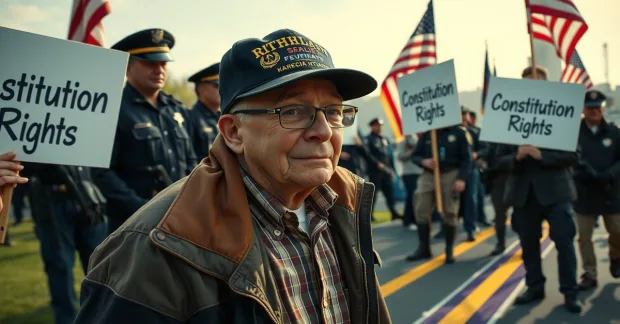
Social media blackouts have become a common occurrence in recent years, sparking debates about the power and limits of platforms in controlling user content. When social media platforms impose blackout periods, they effectively silence users and restrict their ability to communicate and share information online. This raises concerns about freedom of speech and the extent to which platforms can influence public discourse.
Key Takeaways:
- Social media blackouts can be used as a tool to protest against platforms that silence users.
- Blackouts can shine a light on issues of censorship, algorithm biases, and lack of transparency on social media platforms.
- While effective in raising awareness, blackouts may not always lead to long-term changes within platforms.
- Users participate in blackouts to collectively show their power and demand accountability from social media companies.
- Impact of blackouts can vary based on the number of participants, media attention, and support from influential figures.
- Alternative actions such as petitions, social media campaigns, and boycotts can complement blackouts to achieve broader impact.
- Ultimately, blackouts serve as a reminder that users have the collective power to hold social media platforms accountable for their actions.

The Legal Landscape of Social Media
Even with the rise of social media blackouts and concerns about platforms influencing user content, the legal landscape surrounding social media remains complex. Various laws and regulations impact how platforms moderate content and the rights users have when using these digital spaces.
Freedom of Speech and its Limits
Landscape of social media is shaped by the concept of freedom of speech, a fundamental right in many countries. While individuals have the right to express their opinions, this right is not absolute. Legal limitations exist, such as hate speech laws, defamation, and incitement to violence. Social media platforms must balance allowing free expression with preventing harm or violations of the law, leading to debates about censorship and control.
Terms of Service and User Agreements
For social media users, navigating the legal landscape means understanding and agreeing to the terms of service and user agreements set by platforms. These documents outline the rules and guidelines users must follow while using the platform, including restrictions on content, behavior, and intellectual property rights. Violating these agreements can result in content removal, account suspension, or even legal action.
For instance, some platforms reserve the right to remove content they deem inappropriate or in violation of their policies, without prior notice to users. Users often overlook the finer details of these agreements, but they play a crucial role in shaping the online experience and the boundaries of free speech on social media platforms.
Platforms’ Content Moderation Policies
Community Guidelines and Standards
Your content moderation policies and community guidelines are the backbone of your platform. These rules outline what is and isn’t allowed on your site, establishing the standards of behavior for your users. They cover a wide range of topics including hate speech, harassment, violence, nudity, and misinformation. It is crucial to clearly communicate these guidelines to your users to foster a safe and respectful online community.
Mechanisms of Enforcement
Policies around enforcement mechanisms are crucial for upholding community standards. This includes the tools and strategies platforms use to monitor and address violations of their guidelines. Common enforcement actions include removing content, issuing warnings, suspending or banning accounts, and implementing algorithmic filters. On some platforms, users can also report violations, which are then reviewed by moderators.
It is important for platforms to constantly reassess and refine their enforcement mechanisms to adapt to evolving online threats. The effectiveness of these mechanisms can determine whether a platform succeeds in creating a positive and safe environment for its users.
Reasons for Social Media Blackouts
Once again, social media blackouts have become a hot topic as platforms grapple with the challenge of managing content on their sites. While these blackouts may seem like an extreme measure, there are several reasons why tech companies are increasingly resorting to such actions.
Combatting Misinformation and Hate Speech
Blackouts are sometimes necessary to combat the spread of misinformation and hate speech on social media platforms. With the rise of fake news and online hate, tech companies are under pressure to take action to prevent the amplification of harmful content. By temporarily shutting down their services, platforms can halt the spread of dangerous narratives and give themselves time to assess and address the problem.
Protecting Public Safety and National Security
Protecting public safety and national security is another crucial reason for social media blackouts. In times of crisis or unrest, social media can be used to incite violence or coordinate illegal activities. By enforcing a blackout, tech companies can prevent the misuse of their platforms for nefarious purposes and help law enforcement agencies maintain order.
Misinformation and hate speech have the potential to disrupt societies and incite violence, making it crucial for social media platforms to take proactive measures to prevent such content from spreading.
Pressure from Governments and Regulatory Bodies
The pressure from governments and regulatory bodies is a significant driver behind social media blackouts. Authorities around the world are increasingly holding tech companies accountable for the content shared on their platforms. In response to government demands, platforms may choose to implement blackouts as a way to demonstrate compliance and avoid facing legal repercussions.
This dynamic between tech companies and governments showcases the complex relationship between freedom of speech and regulation in the digital age. Social media blackouts serve as a powerful tool for platforms to navigate the delicate balance between enabling free expression and ensuring public safety and compliance with the law.
The Impact of Blackouts on Users
Perspective of Silenced Users
To truly understand the impact of social media blackouts, we must consider the perspective of silenced users. These individuals find themselves suddenly cut off from their online communities, unable to express themselves or access vital information. The frustration and sense of helplessness felt by these users are profound, as they are effectively being stripped of their digital voice and presence.
Long-term Consequences for Online Speech
From a broader perspective, the long-term consequences of social media blackouts on online speech are concerning. When platforms have the power to silence users at will, it sets a dangerous precedent for censorship and undermines the fundamental principles of free speech. Users may self-censor to avoid being targeted or may lose trust in the platform altogether, leading to a chilling effect on discourse and expression.
Blackouts have the potential to create a climate of fear and uncertainty among users, impacting not only individual freedom of expression but also the overall health of public debate and information dissemination online. It is crucial for platforms to carefully consider the ramifications of silencing users and to prioritize transparency and accountability in their moderation practices.
The Debate Over Platform Responsibility
Arguments for Unrestricted Speech
Responsibility is a key topic in the ongoing debate over platform moderation. Advocates for unrestricted speech argue that social media platforms should not silence users, as it goes against the principles of free speech. They believe that individuals have the right to express their opinions and ideas without fear of censorship or repercussions. Additionally, some argue that allowing diverse viewpoints, even controversial ones, fosters robust discussion and the exchange of ideas.
Counterarguments for Responsible Moderation
Moderation in platform responsibility is vital for ensuring a safe and inclusive online environment. Those in favor of responsible moderation highlight the importance of preventing hate speech, harassment, misinformation, and other harmful content from spreading unchecked on social media platforms. They argue that with great power comes great responsibility, and as such, platforms have a duty to protect their users from harmful content that can incite violence or perpetuate harmful stereotypes.
Understanding the nuances of the debate is crucial for finding a balanced approach that upholds free speech while also safeguarding users from harm. Striking the right balance between unrestricted speech and responsible moderation is a complex challenge that social media platforms continue to grapple with in today’s digital age.
Exploring Alternative Solutions
Self-Regulation and the Role of AI
Unlike relying solely on social media platforms to police content, one alternative solution is to explore self-regulation and the role of artificial intelligence (AI) in content moderation. Self-regulation involves setting guidelines and standards for online behavior that platforms and users must adhere to. By leveraging AI technology, platforms can more efficiently detect and remove harmful content such as hate speech, misinformation, and graphic violence.
Legislative Action and the Future of Internet Governance
An effective alternative to social media blackouts is the implementation of legislative action and redefining internet governance. Legislative bodies can establish laws and regulations that hold platforms accountable for the content shared on their networks. This can include penalties for failure to remove harmful content promptly or for violating users’ privacy rights. The future of internet governance lies in creating a balance between freedom of speech and the responsibility to ensure a safe online environment.
This shift towards legislative action is crucial in shaping the way social media platforms operate and the impact they have on society. By enacting laws that promote transparency, accountability, and user protection, governments can empower users and combat the negative consequences of unregulated online spaces.
Transparency and Appeals Processes
This section will research into the importance of transparency and establish clear appeals processes for users who believe their content has been unfairly censored or removed. Transparency ensures that users understand why certain content is moderated or restricted, while appeals processes provide a mechanism for users to challenge platform decisions. These mechanisms are important for building trust between users and social media platforms.
To foster a more open and fair online environment, platforms need to provide transparent guidelines on content moderation policies and how decisions are made. Appeals processes should be accessible, efficient, and considerate of users’ rights to free expression while balancing the need to uphold community standards. Internet users deserve a platform that values their input and respects their rights, and implementing transparent processes can help achieve this goal.
Final Words
Upon reflecting on the potential for social media blackouts to silence users, it is evident that platforms wield significant power in controlling the flow of information and discourse. While there are valid reasons for imposing such restrictions, such as to combat hate speech or disinformation, there is also a fine line between safeguarding against harmful content and infringing on individuals’ rights to free speech. Ultimately, the debate surrounding social media blackouts underscores the balancing act between ensuring platform safety and maintaining open dialogue.
In navigating this complex landscape, it is crucial for platforms to establish clear and transparent guidelines for content moderation, and for users to remain vigilant in holding these entities accountable. Only through continued dialogue and collaboration can we strive towards a more equitable and inclusive digital environment where voices are heard, and ideas are exchanged freely.
FAQ
Q: What is a social media blackout?
A: A social media blackout is when users collectively refrain from using social media platforms as a form of protest or to draw attention to a particular issue.
Q: Can social media platforms silence users?
A: Yes, social media platforms have the ability to silence users by restricting or blocking their accounts, removing content, or implementing algorithms that reduce the visibility of certain posts.
Q: Are social media blackouts effective in making a statement?
A: Social media blackouts can be effective in raising awareness and putting pressure on platforms to address issues, but their impact may vary depending on the scale and duration of the blackout.
Q: Can platforms legally silence users?
A: Social media platforms operate under their own terms of service, which users agree to when creating an account. Platforms can enforce these terms and silence users who violate them, but they must also abide by relevant laws and regulations.
Q: How do social media platforms decide which users to silence?
A: Platforms use a combination of automated tools and human moderators to identify and take action against users who violate their terms of service, such as engaging in hate speech, harassment, or posting inappropriate content.
Q: What can users do if they feel unfairly silenced by a social media platform?
A: Users who believe they have been unfairly silenced by a social media platform can appeal the decision through the platform’s designated channels for reporting and resolving such issues.
Q: Are there alternative ways for users to express their concerns about social media platforms without resorting to blackouts?
A: Yes, users can voice their concerns through feedback forms, contacting customer support, engaging with other users to raise awareness, or utilizing other platforms to share their perspectives and experiences.




















